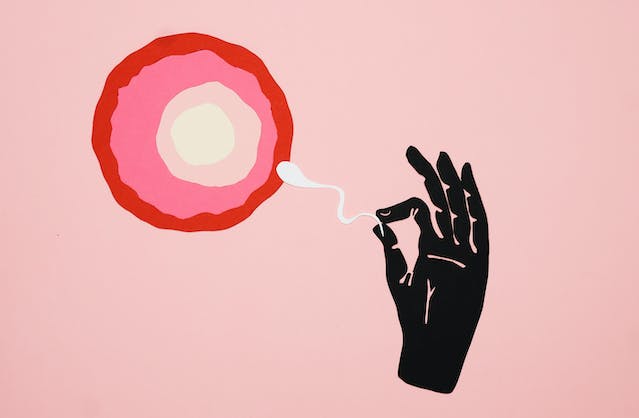The failure to conceive after a year of consistent, unprotected sexual activity is the hallmark of infertility. It can be brought on by several circumstances that can affect both men and women. The following summarises the many forms, causes, symptoms, dangers, diagnoses, and available treatments for infertility in men and women:

Female Infertility
Types of Infertility in Women:
Primary Infertility: After trying for at least a year, a woman has never been able to conceive.
Secondary infertility is the inability of a woman who has once given birth to conceive again.
Reasons for Infertility in Women:
Ovulation Disorders: One of the most prevalent causes of infertility is irregular or missing ovulation. PCOS, or polycystic ovarian syndrome, is a well-known instance.
Blockage in the Fallopian Tubes: When the fallopian tubes are obstructed, the sperm and egg cannot meet.
Endometriosis: A disorder that may impair fertility in which tissue resembling the lining of the uterus develops outside the uterus.
Obstetrical Problems: Disorders like fibroids or uterine irregularities might cause problems for implantation.
Age: Fertility decreases with age, particularly after 35.
Infertility in Females Symptoms:
The inability to conceive after a year of trying is the main symptom. – Irregular menstrual cycles may indicate issues with ovulation.
See the Best Fertility Specialist if you or your spouse are experiencing these symptoms and are worried about your ability to conceive.
Female Infertility Risks:
– Age is a major risk factor because fertility starts to decline around the age of 35.
– Other factors that may raise the risk include obesity, smoking, and binge drinking.

The diagnosis of infertility in women:
Medical History and Physical Examination: Assessing general health and reproductive history.
Ovulation Testing: Tracking menstrual cycles and hormone levels.
Imaging: To evaluate the reproductive organs, use laparoscopy, hysterosalpingography (HSG), or ultrasound.
Blood tests: Monitoring FSH, LH, and AMH levels, among other hormones.
Management of Infertility in Females:
Treatment options include structural corrections through surgery, fertility medicines to induce ovulation, and assisted reproductive technologies (ART) such in vitro fertilisation (IVF).

Male infertility:
Categories of male infertility
The inability to father a child after trying for a year or more is known as primary male infertility.
A guy who has previously fathered a child but is unable to conceive again is said to have secondary male infertility.
Reasons for Infertility in Men:
Disorders of the Sperm: Inadequate motility, low sperm count, or aberrant morphology.
Problems with the ducts that transport sperm from the testes can cause blockage or dysfunction.
Hormonal imbalances: Deviations in testosterone levels, for example, may impact sperm motility.
Genetic Factors: Infertility may result from a few different genetic disorders.

Male infertility symptoms:
The main symptom is the failure to conceive after a year of trying.
– Some men may have testicular discomfort or sexual dysfunction.
Male Infertility Risks:
– Lifestyle choices that lead to infertility include drug and alcohol abuse, smoking, and excessive alcohol intake.
– Certain drugs and exposure to environmental pollutants may also pose a danger.
The Male Infertility Diagnosis:
Semen Analysis: Examining sperm count, motility, and morphology.
Hormone Testing: Checking hormone levels, notably testosterone.
Imaging: Ultrasound or other imaging examinations to examine the reproductive organs.
Management of Infertility in Men:
Changes in lifestyle, medication, surgery to address blockages or structural problems, or assisted reproductive procedures such as IUI (intrauterine insemination) or IVF with intracytoplasmic sperm injection (ICSI) are possible treatment options.
Facts About Infertility: Approximately one-third of instances of infertility are linked to female factors, one-third to male factors, and one-third to a mix of both or unknown causes. Infertility affects men and women equally.
Seeking assistance from a fertility professional is crucial for couples experiencing infertility since medical therapies can address several underlying problems.
– Couples now have more alternatives thanks to advancements in reproductive medicine, including anti-reproductive therapy (ART), which can greatly raise the likelihood of becoming pregnant.
– Seeking support from therapists or support groups might be beneficial for couples who are experiencing emotional and psychological difficulties due to infertility.
Recall that infertility is a complicated problem with a variety of possible causes and that treatment regimens are frequently customised to the unique needs of the patients. Understanding and treating infertility begins with a visit with a medical professional or a fertility expert.
You may also like:
Breathe Easy: Your Guide to Healthy Lungs and a Happy Life
Conjunctivitis: Everything You Need To Know

